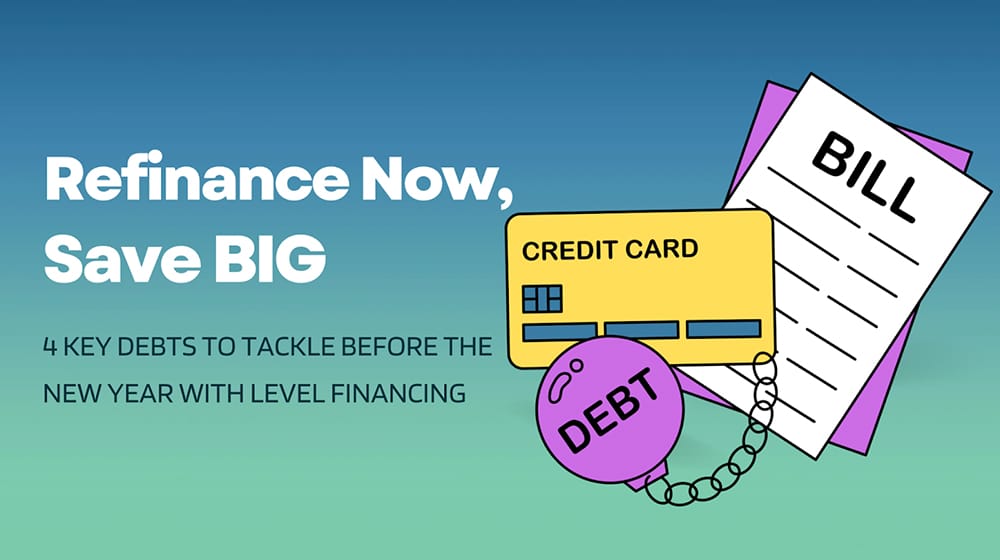Picking the perfect financial advisor is like finding the right dance partner for your money moves. Whether plotting your grand retirement escape, saving for your kid’s future genius status, or just wanting to watch your wealth blossom, a savvy financial advisor is your go-to.
With their tailored advice, you’ll smoothly navigate the dizzying world of finances. From estate planning and investment wizardry to tax trickery and risk wrangling, these pros have got your back.
Understand Your Financial Needs
Before hunting down a financial advisor, pinpoint your financial dreams and schemes first. Knowing your goals means you can snag an advisor with the right chops to lead the way.
Planning for retirement? You’ll need a retirement strategy wizard to set you up for those golden years!
If you’re all about investment advice, snagging an advisor with a killer track record in investment management and portfolio diversification is a no-brainer.
And if debt is your nemesis, find a debt-busting guru who can whip up strategies to crush it.
By nailing down your financial goals, you can match with an advisor whose skills and experience fit like a glove, paving the way for financial success.
Key Takeaway: Identifying your specific financial goals and needs is the first step in selecting the right financial advisor, ensuring that you receive tailored advice and support for your unique financial situation.
Know the Types of Financial Advisors
Choosing a financial advisor? It’s like picking your dream team! You’ve got fee-only advisors, commission-based advisors, and the ever-popular robo-advisors. Each has their own perks and quirks—know the lineup before making your pick!
Fee-Only Advisors
Fee-only advisors: they charge a flat fee or a slice of your assets instead of getting commissions for pushing products. The big perk? Fewer conflicts of interest, so their advice is more aligned with your wallet’s best interests.
But, heads up, they can be pricier—especially if your portfolio is on the petite side. Because while they’re not hawking products, they are keeping an eye on that percentage of assets under management!
Commission-Based Advisors
Commission-based advisors pocket their earnings from the products they sell, like insurance policies, mutual funds, or other investments. The upside? They can be easier on the wallet upfront since you’re not paying fees out-of-pocket. The catch?
There might be a bit of a conflict of interest, as they could push products that pad their commissions rather than fit your financial needs. So, keep your detective hat on and make sure their advice aligns with your goals!
Robo-Advisors
Robo-advisors are the automated wizards using algorithms to manage your investments based on your risk appetite and financial dreams. Their superpower? Costing way less than human advisors, making them perfect for those with smaller portfolios or tight budgets. Plus, they never sleep, offering 24/7 access and management. The downside? They might lack the personalized charm and nuanced wisdom of a human advisor, especially in tricky financial scenarios.
Key Takeaway: Understanding the various types of financial advisors—fee-only, commission-based, and robo-advisors—along with their pros and cons, can help you choose the right advisor that best suits your financial needs and objectives.
Read More: Personal Loans with Fast Approval
Check Credentials and Qualifications
Checking the creds and quals of potential financial advisors is like reading the fine print—crucial! Those shiny credentials mean they’ve hit the books and aced the tests, which can make a world of difference in the advice you’re getting. Choose wisely, and your wallet will thank you!
Certified Financial Planner (CFP)
The Certified Financial Planner (CFP) designation is like the VIP pass in the financial world. To score this golden ticket, advisors dive into a tough boot camp covering everything from retirement planning to tax magic, plus investment and estate wizardry. Then, they face an epic exam and need some real-world experience under their belt.
CFP pros also pledge to a strict code of ethics and keep their knowledge fresh with ongoing education, ensuring they’re always aware of the latest financial buzz. This badge of honor means they’re not just competent but truly dedicated to looking out for your financial well-being.
Chartered Financial Analyst (CFA)
The Chartered Financial Analyst (CFA) designation is like the Jedi Master credential of investment management. To earn it, you need to pass three tough exams covering everything from ethics to financial analysis. Plus, you need real-world experience and a commitment to a strict code of ethics. With a CFA, you’re basically the Yoda of investment analysis and portfolio management. Perfect for those who want to offer sage investment advice.
Other Important Certifications
Besides CFP and CFA, there are other snazzy certifications worth your attention. Take the Chartered Financial Consultant (ChFC), for instance, which dives deep into comprehensive financial planning. Or the Personal Financial Specialist (PFS), perfect for CPAs with a flair for financial planning. Each certification screams dedication to ongoing learning and ethical standards, giving you the confidence you’re getting top-notch, trustworthy advice.
Key Takeaway: Verifying the credentials and qualifications of potential financial advisors ensures that you receive advice from knowledgeable and ethical professionals, with CFP and CFA being among the most respected certifications in the field.

Evaluate Experience and Expertise
Sizing up the chops and know-how of financial advisors is key to hitting your money goals. When vetting potential advisors, why not ask about their specialties—like retirement planning, investment wizardry, or tax magic—to make sure they fit the bill? Also, check out how long they’ve been in the game; seasoned pros have seen it all. And don’t be shy—ask for some client success stories to see if they’ve turned financial pumpkins into carriages for folks like you.
Specialties
Specialization can really amp up an advisor’s game in tackling your financial worries. Got retirement on your mind? A retirement guru will cook up strategies to stretch your savings and boost your income. And if taxes give you nightmares, a tax wizard can conjure up tricks to shrink your tax bill.
Years of Experience
The number of years an advisor has been in the game can hint at their skill and trustworthiness. Seasoned advisors have probably seen it all, navigating a wild mix of financial scenarios. They can tap into this treasure trove of experience to dish out advice that’s spot-on for your unique situation.
Client Success Stories
Asking for client success stories or testimonials is like getting the gossip on an advisor’s track record. These juicy tidbits showcase their knack for exceeding client expectations, giving you peace of mind that they can help you hit your financial bullseye.
Key Takeaway: Assessing the experience and expertise of financial advisors, including their specialties, years of experience, and client success stories, is essential to ensuring they are well-equipped to guide you toward your financial objectives.
Understand Fee Structures
Grasping how financial advisors charge their fees is key to making a savvy choice that fits your budget and style. Advisors have a few tricks up their sleeves, from hourly rates and flat fees to taking a slice of your assets under management (AUM). Choose wisely, and don’t get fed up!
Hourly Rates
Some advisors charge by the hour, perfect for when you need pinpoint advice without the ongoing babysitting. Pay just for the time you use—ideal for those with simple financial needs or a wallet on a diet.
Flat Fees
Flat fees mean you pay a set amount for a specific service or financial plan—no surprise bills, just upfront clarity. It’s like ordering from a menu: you know exactly what you’re getting and what it’ll cost. Perfect for when you need comprehensive financial planning or a one-time consultation without a long-term commitment.
Percentage of Assets Under Management (AUM)
Advisors charging a slice of AUM are like your financial cheerleaders—they get paid based on the assets they manage for you. As your portfolio grows, so does their paycheck, aligning their interests with yours. But beware, for those with hefty asset bases, this cheerleading might come with a hefty price tag!
How to Choose the Right Fee Structure
Choosing the right fee structure is like choosing a dance partner—it’s all about the right match! If you’ve got simple, one-off questions or just need some short-term advice, hourly rates might be your best bet—it’s like paying for each dance. For a comprehensive plan without the ongoing commitment, a flat fee might be just the ticket—think of it as a one-night-only performance. But if you need continuous guidance and management of a substantial portfolio, going with a percentage of AUM is like having a dance partner for life, twirling through the ups and downs together!
Key Takeaway: Understanding the different fee structures and aligning them with your financial situation and preferences ensures you receive the appropriate level of service without exceeding your budget.
Read More: Are Personal Loan Providers Better than Traditional Lenders?
Conduct Interviews
Chatting with a few financial advisors is like speed dating for your wallet. It’s all about finding that perfect match for your money mojo. This lets you compare styles and philosophies, making a savvy choice. When you sit down with them, ask those sharp questions to uncover their approach and see if they vibe with your financial dreams.
Essential Questions to Ask
- What is your approach to financial planning?
- How often will we communicate, and what is your preferred method of communication?
- What are your qualifications and certifications?
- Can you explain your conflict of interest policies?
- How do you measure success for your clients?
- Can you provide references from current or past clients?
Key Takeaway: Conducting thorough interviews with multiple financial advisors, equipped with essential questions about their approach, communication style, qualifications, conflict of interest policies, and success metrics enables you to select a knowledgeable, trustworthy professional who aligns with your financial aspirations.
Check References and Reviews
When picking a financial advisor, don’t just cross your fingers and hope for the best. Verifying references and reading online reviews are your secret weapons. References spill the beans on the advisor’s reliability and effectiveness straight from the horse’s mouth. Online reviews? Think of them as gossip columns for the financial world, revealing both the golden nuggets and the skeletons in the closet.
Ways to Gather Feedback
- Request Client References: Ask the financial advisor for contact info of current or past clients. Chatting with these references lets you dig into their experiences, the advisor’s magic touch, and the results they pulled off.
- Utilize Online Review Platforms: Websites like Yelp, Google Reviews, and niche forums are goldmines of client chatter. Sift through the reviews and watch for recurring themes—whether it’s raving praise or constructive zingers!
- Check Professional Associations: Many advisors belong to professional organizations that maintain strict ethical standards. These associations often have directories or review systems where you can check if the advisor is in good standing or just standing around.
- Seek Recommendations from Friends and Family: Getting the lowdown from trusted folks can be pure gold. Friends or family who’ve dealt with financial advisors can spill the tea with some candid feedback based on their own escapades.
Identifying Red Flags
- Inconsistent or Negative Feedback: If you stumble upon a pile of negative reviews or get mixed stories from references, proceed with the caution of a cat in a room full of rocking chairs.
- Lack of Transparency: If the advisor is cagey about references or mum on their services and fees, consider it a red flag—your financial Spidey senses should be tingling!
- High-Pressure Sales Tactics: Beware of advisors who act like used car salesmen pushing specific products—it’s a red flag for a conflict of interest!
Key Takeaway: Thoroughly checking references and online reviews, seeking candid feedback from past or current clients, and keeping an eye out for red flags can help you find a financial advisor who’s not just in it for the money. Choose wisely, and your wallet will thank you!

Consider Compatibility and Trust
Feeling at ease and trusting your financial advisor is like finding the perfect dance partner for your money waltz. This partnership often spans years and dives deep into your financial secrets, so trust and mutual respect are key. Think of it as a financial buddy-buddy system; an advisor who truly gets you can dish out advice that syncs with your values and goals.
Clear and open communication? That’s your secret sauce! Regular, transparent chats make sure you’re always in the know and confident about your financial moves, reducing worry and fostering a team spirit. With open lines of communication, you can fire away with questions and voice concerns freely, making sure you’re always in the driver’s seat.
Key Takeaway: Establishing a relationship based on trust, personal rapport, and clear communication with your financial advisor is fundamental to achieving your financial objectives and ensuring a smooth, cooperative partnership.




